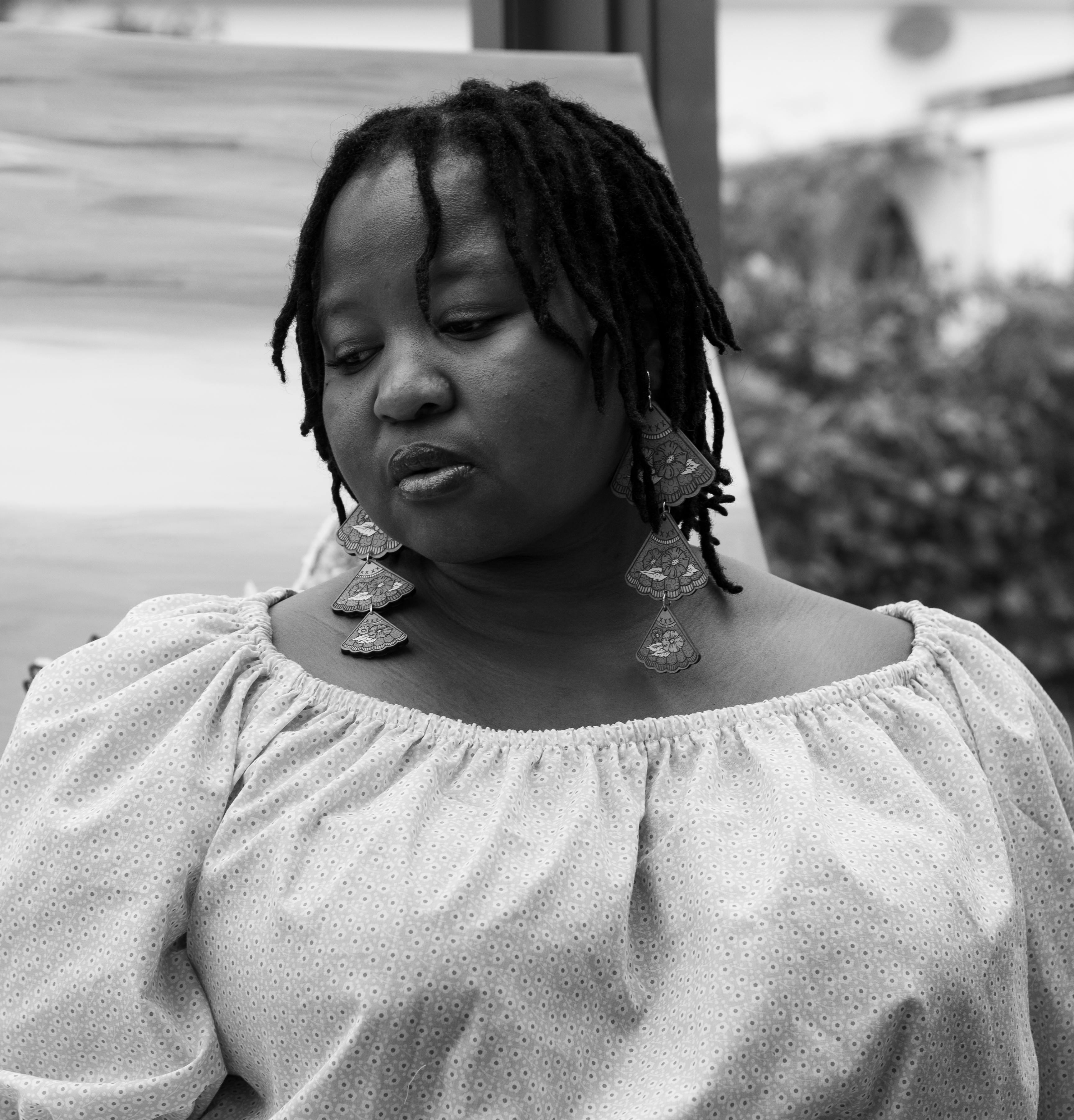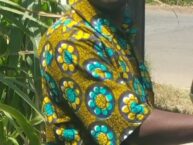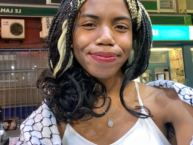A Short Story by Samantha Rumbidzai Vazhure
It has been a year since Harusiyi died. The homestead is brimming with progeny from all over the country and abroad for magadziro aHarusiyi, the Karanga ceremony to bring back the spirit of the deceased into the home to look after the family. Mudzimu will, going forward, be the family’s spirit guide and intercessor between family and Mwari.
A few weeks ago, during kurasha shamhu, the official family diviner, Chijaka, had predicted a smooth sailing magadziro if they followed his instructions carefully. During the session, VaJeketure had become possessed by the spirit of Harusiyi, who stated that she was unhappy that her now deceased husband, Murisi, had once taken a second wife without her knowledge over 40 years ago, and she wanted compensation to resolve that matter. The second wife was also late and had never been officially acknowledged by the family. Chijaka claimed he had received no such message, and the family unanimously decided to brush aside the retrospective compensation. Following the consultation, Harusiyi’s eldest son, Shanyurai, had dedicated chimera to the ancestors, so that the beer brewing could begin.
VaJeketure emerges from the mud hut to release her first waters of the day. The third cockerel has crowed, and most villages have begun to return to life. Long clumps of grey mhotsi fall down to VaJeketure’s calves from her balding crown. A flurry of belches escape her throat as she opens the twig and wire door to take in the lush smell of petrichor after an unexpected drizzle overnight. As the morning dew sips into the cracks of her heels, the gaunt nonagenarian clutches firmly onto her wooden walking stick leading the way to the homestead chimbuzi.. The breeze of Nyamavhuvhu is a welcome sign of the fading winter, and a pleasant reminder that the time to honour the dead is now.
As she enters the reeking pit latrine, VaJeketure hears shuffling inside, then she retreats and waits patiently for the current user to exit. She reaches for a small round metal container hidden inside her blouse and twists it open. She carefully pours a small heap of mudhombo onto a palm weathered and callused by years of toil, then pinches the earthy snuff and sniffs it into her left nostril first, then her right. She winces with pleasure and repeats the process. After a while, Handikangamwi emerges from the spiral doorless passage.
“Mangwananizve Handikangamwi, did you sleep well?” VaJeketure’s face is expressionless as she greets her 70-year-old old niece. “Last night’s mizzle is ominous. It never rains in August.” She returns the mudhombo where she found it.
“Ko tambovata here? Padzanga dzobata ndopandavhiringidziwa naiwo mutundo wemangwanani.” Handikangamwi complains about her full bladder interrupting the little sleep she might have got after a long night of jubilation. Her face is lugubrious, as she heads back to the kitchen hut with a cautious gait. She avoids the rain comment, or her usual banter with VaJeketure, the family svikiro who might spill news she’s not prepared to hear.
As she leaves the chimbuzi, VaJeketure notices Dadai the goat and sighs, “It’s going to be a long day!” Dadai is the chosen nhunzvi, already tied to the mukwakwa tree in readiness for kuzuza, the goat-shaking ritual that must take place after kurova guva, to confirm that the spirit has accepted its invitation back home.
In the kitchen, Mai Matuzvi’s several hundreds of litres of doro rechiKaranga, traditional beer, are stored in makate, full to the brim, and ready for the task at hand. Mai Matuzvi is the best traditional beer brewer in the village, and by coincidence, qualified for magadziro, which requires beer to be brewed only by postmenopausal women, as period blood is considered unclean. It did not take her long to make the beer because the grain was collectively provided by Harusiyi’s relatives, immediately after kurasha shamhu. Mai Matuzvi is being assisted by two other middle-aged brewing experts, Mai Bhiridha and Mai Shongera.
The mention of matuzvi makes the distant Zezuru and Manyika relatives cringe with embarrassment because where they come from matuzvi is an uncouth word, and they refer to her only by pointing, or using the pronouns imi or avo. This tickles the Karanga locals, who then over-mention “Mai Matuzvi” for their own amusement. Harusiyi’s grandson, Musindo, is an impish 21-year-old who travelled from South Africa where he’s pursuing a BA in Film and Television Studies. He flew into Harare a few days ago then drove to Chivi with his mother Kahlamarai, Harusiyi’s third daughter.
“You said she’s called what?” Musindo chortles behind his VHS recorder, encouraging the carrying on. Matuzvi which translates to “a pile of shit”, is a nickname awarded to Mai Matuzvi by the locals for brewing delicious beer which, if over consumed, will result in self-soiling due to drunkenness. No one uses her real name, not even the children.
Some Christian varoora who have been dragged to the ceremony by their traditional husbands are protesting, huffing and puffing all the way. “Have they not read Isaiah 8 v 19? “And when they say to you, ‘inquire of the mediums and necromancers who chirp and mutter,’ should not a people inquire of their God? Why consult the dead on behalf of the living?” Eish, I can’t!”
The graveyard sits in the valley of Gomo Sese, a tranquil place with an arid backdrop where aged mopane, muhacha, mutondo and muzeze trees tower over the graves to provide shade to the loved ones, gone too soon. More indigenous trees are sparsely scattered in the bare fields beyond the graveyard, embellished with blotches of bushes and grass. Oxen are tethered to some of these trees by tambo yemashamhanda, to stop them from knocking down headstones in the graveyard whilst grazing. Tombstones are the perfect bovine scratching posts which are, unfortunately, ramshackled by remorseless steers and cows trying to quell their itch. Broken pieces of granite are scattered all over the graveyard, making most of the graves look derelict. Some varoora have been to tidy up the stones in preparation of the laying of Harusiyi’s tombstone after magadziro.
The previous dusk, a delegation of representatives from all families present made their way on foot to the family graveyard, with nhekwe yomusha to hand, to invoke Harusiyi’s spirit and bring her home. Harusiyi’s grandsons had been tasked with driving gate redoro to the graveside in one of the pickup trucks.
As they walked to the edge of the homestead the length of a football pitch, to Harusiyi’s resting place, a drum beater played Mhande t and they sang Baya Wabaya, a war song waging a war against death, thereby summoning the spirit to come back to its earthly home:
Kwahi yava mhuka inobva mugomo
Yowe rere, ndeha ho!
Yave mhuka inobva mugomo
Baya wabaya!
Yowe mwana akabaiwa
Baya wabaya!
Yowe mwana wakaparara uyo
Baya wabaya!
Ho yava mhuka inobva mugomo
Yowerere hohaho, hondeya ndeya
Haiwa baba munoera
Baya wabaya!
Yangova nyama yokugocha
Yowerere, ndeha ho
Yangova nyama yokugocha
Baya wabaya!
When they arrived at Harusiyi’s grave, they knelt around it, some of the people overflowing to Murisi’s grave on her right, and his mother’s grave on her left. Several gourdfuls of beer were ladled from the gate and poured over her grave accompanied by praise poetry recitation, then snuff from the nhekwe was sprinkled over it. They subsequently took swigs of beer from the gourd, which they passed around, and took turns to sniff bute remaining in the nhekwe.
Harusiyi’s eldest nephew, Manenji, cut a sizeable branch of the muzeze tree, also known as mupumhamakuva, which means ‘beater of graves’. Using the muzeze branch, Manenji swept and beat the grave, kurova guva, and the family invoked Harusiyi’s spirit to return and ride on the branch, so they could carry her back into the family home:
Harusiyi! Masivanda! Shumba Chikara!
It is us, your family. You have been wandering in the wild in solitude.
Today we have come here to take you home, so that you might join your people.
W Chidzokai mumusha Masivanda, kuhotitungamira nokutireverera.
Tivhenekerei pakaresveka, kasi mutihwire vurombo.
Manenji had then led the delegation, dragging back the muzeze branch into the homestead where they were welcomed with utter merriment. Manenji ensured to not look back whilst dragging the branch, kucheuka, as the ancestor might escape and run back to the grave. From the graveyard to the homestead, again, they sang the song Baya Wabaya.
While the family ululated and whistled, the delegation from the graveside entered the round kitchen where Mai Matuzvi’s makate were safely stored. The branch of muzeze on which Harusiyi’s spirit was riding was subsequently hung up on the thatched roof of the kitchen hut, and it would stay there until Harusiyi had confirmed her return. There had been exultant dancing and singing until the early morning hours, to welcome Harusiyi home.
Around 6 am, Manenji makes the much-awaited announcement.
“Pamusoroi vadikamwi,” he summons the attention of all present. “As you know, the spirit of our beloved Harusiyi has been invited into the home, but she has not yet accepted the invitation. Each one of you will be called out individually to come and pour beer on Dadai’s back. You may say whatever message you have for Harusiyi. Perhaps you want to remind her who you are or share a memory. If Dadai shakes, that will be our sign that Harusiyi has returned. Whoever the goat shakes for, will be awarded the respect Harusiyi was given when she was alive. Ndoreva kuzuza komene somunhu unotsava, kwete kupfakanyika!” Everyone laughs as Manenji demonstrates with his sizeable stomach that the goat must vigorously shake, and that slight movements do not count.
“Ehhh! No food will be consumed until the goat shakes!” Manenji concludes his announcement, then unties Dadai from the tree and enters the kitchen where the muzeze branch is hung up. Holding one end of the rope Manenji alights on chigaravakwati, and Dadai stays outside on the kitchen threshold, waiting for the ritual to begin.
Having been a successful businesswoman, farmer and the ruling party political commissar, with 12 well-educated children, Harusiyi is a highly respected soul, and there are a few contenders for the inheritance of her status.
Musindo, who is sceptical about the ceremony, continues to record excerpts of the event on his camera, with running commentary he can’t wait to share with his friends.
The beer pouring ceremony begins, with all the distant relatives going first, to give everyone an opportunity to experience the phenomenon.
“It is me, your nephew Zheve of the Hungwe clan!
Chatibgwege! Chishiri chamatako maviri!
Chisurira mudenga! Chasura chati bhuuu!”
He introduces himself in totem verse, and alien children chuckle, their mothers squirming to the onomatopoeia of farting birds; itself the fulcrum of Hungwe praise poetry. Zheve scoops a gourdful of beer and theatrically pours it evenly across Dadai’s back. The goat does not shift.
In the meantime, Musindo is narrating his observations in real-time behind his recorder, cool as a cucumber, like a golf tournament commentator, “He scoops yet another gourdful of delicious beer and stretches his arm to try again. Oh no, they’re stopping him, or he’ll finish the beer before we get the chance to taste it. Next in line is Mai Bhiridha, one of Harusiyi’s closest friends. Perhaps because she brewed the beer, the goat will shake. Let’s see…”
Mai Bhiridha goes, “It is me, Mai Bhiridha, Madhuve! Vamwene vangu, I looked after you on your deathbed until you left us!” Already intoxicated with her own brew, she breaks into song, beatboxing a mishmash of ngondo and dinhidza-inspired liturgical rhythms:
Ngundu ngundungu, ngundu ngundungu!
Fata murungu, fata murungu!
Ndini-iii chimama mabhanzi!
Vabhinzi vanonaka sebhiiii-nzi!
Fata murungu, fata murungu!
Ngundu ngundungu, ngundu ngundungu!
“Hei hei, zvekereke pano hatidi kuzvihwa!” One of the older males bellows belligerently; they’re not interested in Catholic hymns today.
“But Harusiyi used to go to church!” cries Mai Bhiridha.
“Tibvigwe!” an old man hollers at her to get away.
“Haiwavo! Unokonesa mudzimu kudzoka iwe. Ndewani fata murungu? Nxa!” another one reprimands, and Mai Bhiridha stops singing then scoops the beer, slowly pouring it over Dadai who merely blinks.
“It is me, dangwe renyu, Shanyu! Dziva, Musaigwa, dambiro ravasikana!”
“It is me, goqhwe renyu, Njodzi!”
“It is me, your brother, Mhike! Murambgwi vasingarambgwi!” He roars like a lion to typify the magnificence of his totem, then melodramatically pours two gourdfuls of beer, but Dadai does not flinch.
“It is me, your favourite granddaughter, Pqwanyai.” She pours the beer, but Dadai only winces.
“It is me, your youngest granddaughter, Nyukurai.” And she repeats on behalf of her absent older sister, “It is Nyuku, pouring on behalf of Gugudzai who is in America.”
It is nearly noon, and the theatrics are ongoing. When Handikangamwi finally gets up to take her turn, there is quiet anticipation. She and her sister were as close as skin and pith of dried nyii and had a bond that could only be separated by death. Handikangamwi is Harusiyi’s older and only surviving sister. She arrives in front of Dadai and says in a quiet voice, “Rufuharusiyi. It’s me, your sister.” She is the only one who refers to her sister by her full name, Rufuharusiyi, which means ‘death leaves nothing’. She gently pours the beer over Dadai’s back. The goat does not move.
“And the sister who everyone thought would make the goat shake has failed. Dismally. She turns around slowly and in utter disappointment, returns to her seat…” Musindo receives a discreet pinch in his tender armpit muscles, from Kahla, for being insensitive, and he mutes momentarily.
“Dirai rimwe! Pour some more!” Some voices in the crowd shout. Handikangamwi turns back and pours three more gourdfuls of beer on Dadai’s head and all over her body, then gives up. At this point, stomachs are beginning to rumble, but no food can be consumed before mbudzi yazuza.
The elders of the village mobilise in one of the huts, where they agree that Chijaka must be summoned. Outside, VaJeketure begins to burp hysterically as she walks towards the hut, stripping off some layers of her clothing as if they’ve suddenly become too tight.
“Kwatinobva kunopisa! It is hot where we’re coming from, it is hot!” Her face deforms as she grimaces and demands a beverage to quench her thirst. The voice she speaks with is a man’s.
“Ndiwe ani?” Manenji demands to know who is speaking.
“Ndini Baba vake, Femu. Ndinaye pano Harusiyi.” The voice says it is Femu, Harusiyi’s father, and the spirit of Harusiyi is present, with him. When Femu is asked what they will have to drink, he demands the fresh blood of lamb before he can speak. “Ndati tiri kubva kunopisa! Tine nyota! Toda ropa regwayana. Tohotaura tagungwa.”
“KwaDhobha kune hadzi ichangobetsegwa. Indai mopuwa makwayana maviri ikoko vakomana,” one of the uncles says there’s a lambing ewe in the neighbouring Dhobha village. A few men jump into one of the twin cabs parked in the yard, with money provided by one of Harusiyi’s grandchildren. They return within the hour with two lambs, and find VaJeketure writhing on the floor, now naked and ensnared in her mhotsi, with vigour they’ve not witnessed before in the svikiro. One of the lambs is slaughtered immediately, and a pail is filled with its warm blood. VaJeketure sits up then guzzles it all without stopping.
“Give her more!” one of the elders instructs, and more blood from the second lamb is drawn and offered to VaJeketure who gulps it all again.
“Yaaaaaaaaaaaa! Buuuuurrrrrrrrrrrp! Tarakwa hino!” She licks the blood around her lips and belches again, several times, before clearing her throat.
“You were told not so long ago, by Harusiyi herself, that she wanted to be reparated. Murisi, her husband, took another wife without her approval, and she was never compensated for the distress caused by that clandestine man. She wants two cattle as restitution. A bull and a heifer paid for by his family. Until her wishes are honoured, Harusiyi will not return.” As soon as the message is out, VaJeketure falls back onto the floor and lapses into deep sleep, and they cover her with a blanket on the same spot.
Terrified of the prospect of ngozi, Murisi’s side of the family quickly contributes cash until there’s enough to buy two beasts. A local farmer is identified, kwaZhara, where the cattle will be purchased. After two hours of waiting, hunger intensifying, the animals finally arrive following a 4-kilometre trot; and they are presented to Harusiyi by Manenji who claps and announces that the wrong has been corrected.
The beer pouring ritual is resumed, and when all the family have poured the beer on Dadai who does not shake, they decide to go and collect Chijaka from Ngundu, 20 kilometres away. By this time, VaJeketure has woken up and also poured beer on Dadai. She has no idea who possessed her earlier and cannot recall any of the things she said.
When Chijaka arrives from Ngundu, his head is embellished with a feathery ngundu, and he wears an animal hide skirt, mbikiza. Stomping his feet with poise, magavhu, the leg rattles tied to his calves, create a euphonious harmony with nhare yavadzimu, his thumb piano that communicates with ancestors in the otherworld. It is said he inherited it from his maternal lineage in Mhondoro, direct descendants of Gumbi Nehanda. Short, muscular and dark-skinned, Chijaka dances into the yard with regal air, playing his percussions with estimable skill whilst singing a song to the Mhande rhythm:
Dzinomwa muna Save
Mhondoro
Dzinomwa muna Save
Mhondoro
Dzinomwa muna Save
Women ululate, kupururudza, while men clap their cupped hands, kuvuchira, and they join in the singing until Chijaka arrives at the mukwakwa tree where he lays down his mbira on the ground. He walks to the kitchen threshold to inspect the goat. In dead silence, everyone waits for his divination with palpable impatience. Chijaka begins to laugh hysterically, and everyone wonders what is funny.
“Ah! Ine zamo iyi!” He exclaims that the goat is pregnant, making it ineligible for the ritual. Did they not know this? Chijaka asks them. A pregnant goat may as well be contaminated, because it carries another life, and two spirits cannot be used to return one spirit. A few men are sent to the family kraal to select another nhunzvi goat, one that is not pregnant!
In the meantime, Chijaka provides some much-needed entertainment. He unties a small axe, chisanhu, attached to his mbikiza, which he waves around as if carving shapes in the air, dancing, this time with the aid of ngoma and hosho in the crowd that joins him in the singing.
The men return with another female goat that has given birth before and is not pregnant, Gavhumendi. When Dadai is set free, she trots to a nearby pasture to graze.
It is now 4 pm, everyone present is perturbed by pangs of famishment. The pouring ritual begins, and Gavhumendi stands still. After five pourings with no luck, a few voices suggest that Handikangamwi skips the queue and goes next, to speed up the process. Hunger agitation makes the consensus quick.
“We have been here all day for magadziro ambuya Harusiyi, enjoying amongst other things, the sparsely wooded smooth round imposing boulders dotted across the Chivi landscape. And once again, the dear sister walks past the mukwakwa tree, to the kitchen entrance where Gavhumendi, the replacement goat, awaits an inevitable drench,” much to his mother’s annoyance, Musindo is at it again, “Well, after her third try, she turns back and sadly returns to her seat.” At this point, even Handikangamwi’s annoyance with Harusiyi is obvious. She stops midway towards her seat and turns to briefly give Gavhumendi a blustering side look, then continues slowly to sit.
“Oh, even the otherwise calm sister has had it! Will we consult another diviner? Or will we, oh…wait! It’s shaking! It’s…Oh my God!” Musindo is screaming in shock and hilarity.
Gavhumendi tremors vigorously as if she’s being electrocuted by a prodder, then leaps vertically, then in all directions.
“Yazuza! It has shaken!”
“Iri kuzuza! It is shaking!”
“Wadzoka Harusiyi! You are back, Harusiyi!”
The resonance of jubilation drowns the homestead, as men whistle, and women ululate, to celebrate the shaking Gavhumendi; the sign of Harusiyi’s acceptance of the invitation back home.
As soon as she calms down, Gavhumendi is quickly slaughtered by four men, and immediately roasted on an open fire. The goat is eaten unsalted to comply with Chijaka’s instructions. The whole animal is consumed, except its head and legs which are burnt in the fire with the hide and bones.
The rumbling stomachs are transitorily quelled, and a sacrificial cow provided by Harusiyi’s children is slaughtered to make the proper celebratory meal, which is cooked by varoora.
Sadza rorukweza has been sitting on embers for hours on end during the beer pouring ritual. Varoora are now cleaning offal, tying matumbu around guru to make zvinyenze, which will be served with the sadza. In the meantime, men enjoy the finer cuts of beef that they’re roasting at the open fire. Goat and ox blood has been cooked to make mushiya for Harusiyi’s younger grandchildren, who are also enjoying grilled chiropa, mapapu and gwatata.
Using his bare hands, Manenji offers a morsel of sadza rorukweza and a piece of meat to a few close relatives, to mark the communion between Harusiyi and her family, and the beginning of the banquet. The sadza is served in sero, and the meat in mbiya.
After the main course, a brief pause of the celebrations sees a cow presented to Manenji, a gift for leading magadziro.
Makate edoro are allocated by family or village, and there is more than enough for all present. The effects of Mai Matuzvi’s concoction soon begin to present in warbling and squabbling.
The bhosvo’s exultant explosion now accompanies ngoma, hosho in the jubilant rhythm of Jiti song and dance. The dancing women’s rears gyrate vigorously much to the pleasure of the clapping men. Slurred singing voices are drowned by wind and percussion, and the celebration carries on into the early morning hours. The family will convene the next day to plan the laying and unveiling of Harusiyi’s tombstone.
Glossary
ambuya – grandmother’s
avo – them
Baya wabaya song: Kwahi yava mhuka inobva mugomo! Baya wabaya! Yowe mwana akabaiwa! Yowe mwana wakaparara uyo – They say it’s now an animal coming from the mountain! Stab it as you will! The child was stabbed! The child perished!
bhosvo – an antelope horn wind instrument
bira – all night ritual to communicate with ancestors
bute – snuff used for saging; also used during traditional ceremonies to strengthen the spiritual link between the living and the ancestors
Chatibgwege! Chishiri chamatako maviri! Chisurira mudenga! Chasura chati bhuuu! – It makes the bgwege sound! The bird with two buttocks! That farts in the air! The farter that goes bhuuu! (phrases from the fish eagle totem praise poetry)
chiropa – liver
chigaravakwati – a circular mud bench that goes round the internal hut walls
chimbuzi – toilet
chimera – sprouting grains
Dinhidza – traditional Zimbabwean rhythm / dance
doro rechiKaranga – Karanga traditional beer
Dzinomwa muna Save – They drink from the Save (river)
Dziva, Musaigwa, dambiro ravasikana – the lake where girls like to play (a phrase from the fish totem praise poetry)
dangwe renyu – your first born
Fata murungu, fata murungu! – The father (priest) is white and foreign, the father is white and foreign.
gate redoro – large earthenware pot full of beer
goqhwe renyu – your last born
gwatata – pancreas
Jiti – traditional Zimbabwean rhythm / dance, popular among the Karanga people
Haiwavo! Unokonesa mudzimu kudzoka iwe. Ndewani fata murungu? – Nonsense! You will stop the ancestor from returning. Whose father is white?
imi – you
kurasha shamhu – the consultation to announce their intention and seek guidance for kurova
guru – tripe
guva – grave
hosho – hand rattles
kurova guva – beating the grave
kuzuza – shaking
makate – the largest size of earthenware pots
mangwananizve – good morning
mapapu – lungs
matumbu – intestines
mbiya – small clay pots
Mhande – traditional Zimbabwean rhythm / dance, popular among the Karanga people
mhotsi – dreadlocks
Murambgwi – sub clan of the lion totem, loosely translated, the one who is ostracised; vasingarambgwi – one who cannot be refused (a phrase from lion totem praise poetry)
Mhondoro – spirit guide of a particular clan / lions. There is also a geographic location called Mhondoro in Zimbabwe
mudhombo – a type of snuff associated with female ancestors; used for saging
muzeze – African wattle
Mwari – God / the Creator
Ndini-iii chimama mabhanzi! Vabhinzi vanonaka sebhiiii-nzi! – I am the shitter of buns! I am beans (VaNyemba), I taste good like beans! (phrases from the zebra totem praise poetry)
Ngondo – traditional Zimbabwean rhythm / dance, popular among the Karanga people
ngoma – drum
ngozi – avenging spirit
ngundu – headgear made of feathers, usually worn by diviners. There is also a geographic location called Ngundu in Zimbabwe
Ngundu ngundungu – drumbeat onomatopoeia
nhekwe yomusha – family snuff container that is kept spiritually clean by the family medium
nhunzvi – a female animal that has given birth before
Nyamavhuvhu – August
nyii – bird plum
tambo yemashamhanda – agave rope
Tarakwa hino – our thirst is quenched now
Tine nyota! Toda ropa regwayana. Tohotaura tagungwa – We are thirsty! We want the blood of a lamb. We will speak when our thirst is quenched
sadza rorukweza – millet thick porridge
sero – winnowing baskets
svikiro – spirit medium
varoora – daughters in law
zvinyenze – a stew of goat tripe wrapped in small intestines

![]()
![]()
![]() Samantha Rumbidzai Vazhure is a bilingual poet, novelist, librettist, screenplay and short story writer, translator and visual artist who grew up in Masvingo. She resides in Wales, usually writing about matters of the heart, the human condition, the migrant experience, womanhood and equality. She has published a poetry collection in chiKaranga – Zvadzugwa Musango, which she translated to English – Uprooted, a novel – Painting a Mirage, and more poetry – Starfish Blossoms, which won the National Arts Merit Award for Outstanding Poetry Book in 2023. Samantha has compiled short story anthologies by Zimbabwean writers, Turquoise Dreams and Brilliance of Hope, of which she contributed two short stories to the latter – Barcode and Tariro. More recently, she co-compiled a poetry anthology, Tesserae: a mosaic of poems by Zimbabwean women, and she contributed 6 poems to the same. Samantha is currently writing speculative fiction, with a view to publish a composite novel in due course.
Samantha Rumbidzai Vazhure is a bilingual poet, novelist, librettist, screenplay and short story writer, translator and visual artist who grew up in Masvingo. She resides in Wales, usually writing about matters of the heart, the human condition, the migrant experience, womanhood and equality. She has published a poetry collection in chiKaranga – Zvadzugwa Musango, which she translated to English – Uprooted, a novel – Painting a Mirage, and more poetry – Starfish Blossoms, which won the National Arts Merit Award for Outstanding Poetry Book in 2023. Samantha has compiled short story anthologies by Zimbabwean writers, Turquoise Dreams and Brilliance of Hope, of which she contributed two short stories to the latter – Barcode and Tariro. More recently, she co-compiled a poetry anthology, Tesserae: a mosaic of poems by Zimbabwean women, and she contributed 6 poems to the same. Samantha is currently writing speculative fiction, with a view to publish a composite novel in due course.



